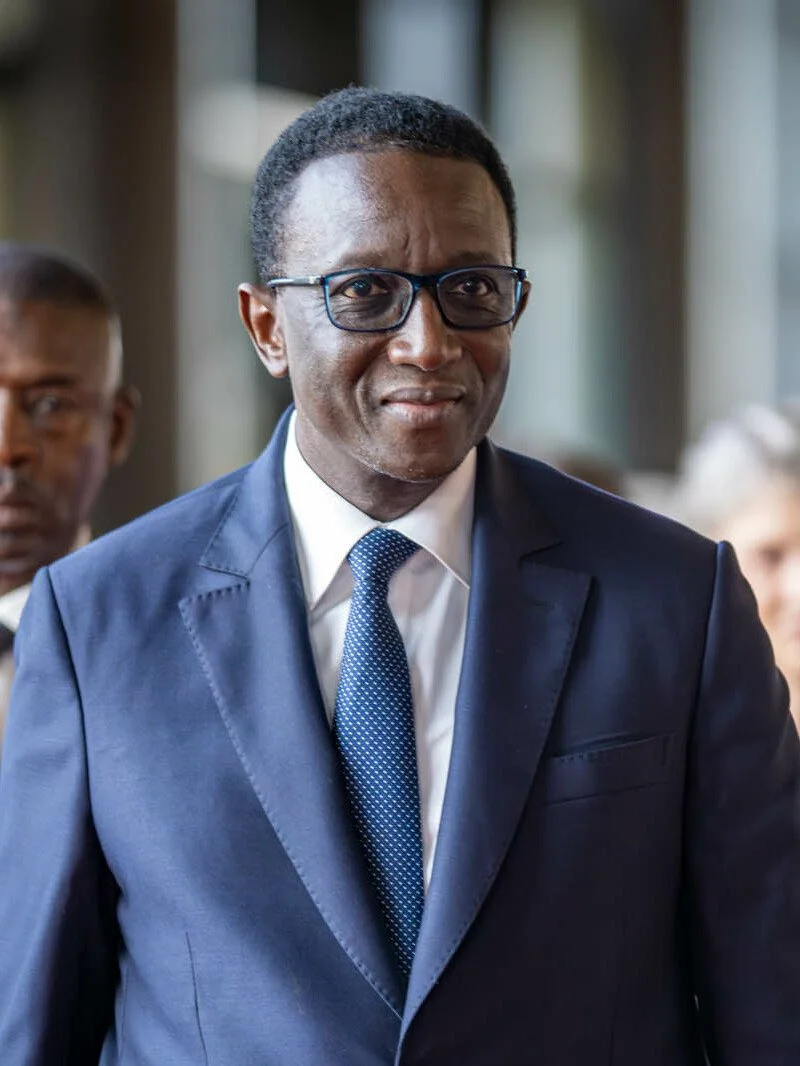Senegal's Turbulent Path to the 2024 Presidential Election
Amadou Ba, Prime Minister of Senegal and President Sall’s hand-picked successor, faces a field of 19 candidates in Senegal’s March 24 presidential election. (Wikipedia Commons)
Senegal, known for its entrenched multiparty system and usually seen as one of the most politically stable West African countries, is confronting political and social turmoil ahead of its March 24 presidential election.
On March 24, the Senegalese people will elect a new president to succeed incumbent Macky Sall, who is not seeking reelection after serving two five-year terms.
Senegal operates as a multiparty republic with a centralized presidential regime in which the president is elected by direct universal adult suffrage. In the upcoming election, a record number of 19 candidates are running, with four main candidates occupying the center stage: Prime Minister Amadou Ba, the ruling Benno Bokk Yakaar (BBY) coalition's nominee hand-picked by President Sall (no relation to incumbent Macky Sall); veteran politician Idrissa Seck, former Prime Minister and the head of the Rewmi party that ran in a coalition with the BBY in the 2022 legislative elections; Khalifa Ababacar Sall, former mayor of Dakar; and Bassirou Diomaye Faye, who rose to public attention after receiving the backing of imprisoned opposition leader Ousmane Sonko.
Rather than policy debates, this election process has been marked by delays, protests, and legal disputes, reflecting underlying tensions within Senegal’s political landscape. The political drama first manifested itself during the 2019 election, when hundreds of opposition members were arrested and prominent opposition leaders became embroiled in legal troubles, which many saw as politically motivated.
President Sall’s chief rival, Khalifa Ababacar Sall, was disqualified from the 2019 presidential election after being convicted of fraud and sentenced to a five-year jail term. His 2024 presidential bid focuses on reuniting the divided country and reforming state institutions to avoid future constitutional crises.
Ousmane Sonko, a disqualified opponent of President Sall, has decided to back Faye, who has been detained on accounts of defamation and contempt of court since 2023. Members of his dissolved Pastef party, many of whom are jobless youths, now rally behind Faye. After weeks of protests and rallying, both Faye and Sonko were released on March 14, just 10 days before election day.
The situation in Senegal captured international attention when President Sall called off the election originally scheduled for February 25, claiming concerns about disputes over disqualified candidates and potential unrest.
Three people were killed and dozens arrested during protests against the postponement, prompting criticism about the use of excessive force and suppression of dissent from some human rights groups. President Sall has released several jailed government opponents to appease public outrage, but questions about political inclusivity and fairness in the electoral process remain.
A few days later, Senegal’s Constitutional Council ruled the postponement unconstitutional and required the current administration to hold an election before Sall’s term expires on April 2. The Economic Community of West African States (ECOWAS) urged Sall to stick to the election timetable.
In response to the court decision and international pressure, President Sall announced that the vote would take place on March 24.
While there has been no public polling of the election, chances of a runoff are high, unlike the 2019 presidential race where President Sall swept with a decisive 58 percent of votes, winning a majority in the first round of the election and avoiding a runoff.
Mucahid Durmaz, senior West Africa analyst at risk intelligence company Verisk Maplecroft, points out the postponement could catalyze the establishment of “a united opposition front against the ruling coalition.”
In addition to advocating for free and fair elections and a smooth transition of power, opposition groups are campaigning on the pledge to bolster the economy by introducing a new currency and boosting the nation's oil and gas output through renegotiating with foreign partners.
Under the watchful eye of the international community, the 2024 election represents a critical juncture for Senegal, as the outcome will not only determine the country’s future leadership but also shape its democratic trajectory.

